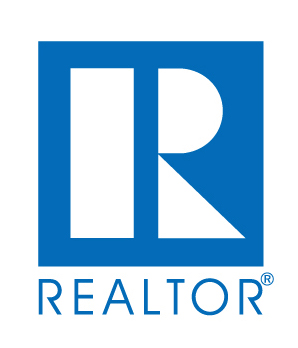By Sam DeBord
Excerpted from Sam DeBord’s contribution to the book “The Honest Real Estate Agent” (2016) by Mario Jannatpour.
This is the question that inevitably comes up for new real estate agents within their first few years of business. There are fees to be paid to the licensing agency, the brokerage, and the MLS, but what is the REALTOR® organization actually doing with my money? Why do I have to pay them every year?
It’s a fair question, and it’s one that often requires a lot of experience to fully answer. Many REALTORS® go through their entire careers without grasping it, which is a shame. REALTOR® membership is the foundation of our industry.
The Elevator Pitch
Real estate agents are busy people and they like quick explanations. So let’s start out with the two minute version of the value of REALTOR® membership:
- Being a REALTOR® will cost you a few hundred bucks a year. For that, you’ll receive protection: legal guidance to prevent lawsuits, and governmental advocacy to safeguard your current paycheck, your local market, your clients’ property rights, and your future paychecks.
- You’ll also receive business building benefits: education to expand your skill set, career guidance and tools to promote a more profitable business model, and an association with the industry’s top professionals for networking, referrals, and professional development.
Don’t step over dollars to pick up pennies. This is the essence of the value of membership. If a few hundred bucks is too much to protect and grow your business, your mindset is probably not going to allow you to be successful in real estate.
Hard work pays big dividends in this industry. The financial rewards are one of the main reasons we’re attracted to it. The price of REALTOR® membership is miniscule when compared to benefits it provides, and the potential income available to a member.
The MLS
Notice that the Multiple Listing Service wasn’t mentioned in the elevator pitch. That’s because the REALTOR® association provides so much more. Its value is immense even if the MLS weren’t a business tool provide by some of its boards.
That being said, if your REALTOR® board does provide an MLS, the value is immediately clear. The MLS is the basis for a transparent and open marketplace for our clients and ourselves. The data sharing between brokers, and rules of cooperation, make for a business atmosphere that provides certainty for its members and better choices for all.
People often confuse the new national advertising portal websites with the MLS. While they both may display listings for sale, they’re significantly different. The MLS provides enforcement so that agents and customers have a framework for fair and ethical practices. It ensures that brokers advertise and pay commissions to cooperating brokers.
Without the MLS, we’d live in the Wild West of past real estate days. New agents may not know, but the REALTOR® organization was created to stop unscrupulous salespeople that dominated real estate sales over a century ago. The National Association of REALTORS®, and eventually the MLS, have set the standard for professional, licensed representation and a smoothly-flowing transactional market available to any consumer.
Getting Deeper: Value to New REALTORS®
REALTOR® associations offer services to their members that are often highly valuable to newer real estate agents. Education classes catered to new REALTORS® focus on learning much more than is taught in licensing courses. REALTOR® classes teach members how to run a business.
Courses cover transactions, forms, lead generation, marketing, and financial management. Other benefits can include discounted services, technical support, or a legal hotline. There’s also significant legislative advocacy that helps the newer agent work with clients without the fear of unnecessary liability.
NAR also has a Code of Ethics that members are required to abide by. This isn’t a fluffy list of ways to be nice to those we work with. It’s a detailed set of standards of practice that tell members how to ethically work with each other and the public. It raises the level of professionalism in the industry and creates a standardized foundation for us to work upon.
What did REALTOR® membership do for me?
Those of us who are heavily involved in our local, state, and national boards see how REALTOR® membership improves our businesses every day. We’re trying to do a better job of helping newer agents understand it.
Here’s just one way that I can say REALTOR® membership directly influenced my career:
Fast-Tracking Experience
When I started out in the real estate business, my biggest fear was probably the same as many other agents’: “What if they ask me how many homes I’ve sold?” There was an almost inescapable fear that every new client I met would find out that I hadn’t been selling for very long, and abandon me for a more experienced agent.
Being experienced in real estate is a big advantage. If you’ve really never sold a home before, it’s okay to tell your clients, “I’m working with my managing broker on your entire transaction. He/she is backing me up and will be reviewing everything in the contract to make sure we keep your home purchase/sale stress free.” To be honest, if you haven’t written many contracts yet, there’s really no excuse to not have that mentor as a second set of eyes.
There is no way to speed up the length of time you’ve been working in the industry. There is, however, an easy way to increase the depth of that experience.
Consider this response to a client’s question about experience:
“I’ve been serving this community’s REALTOR® board government affairs committee as well as selling homes here for a couple of years. I’ve helped a half-dozen clients sell so far this year, while also working on a task force that’s helping to ensure fair foreclosure practices and to secure property rights for our local homeowners.”
Working with a local REALTOR® board is one of the fastest ways to achieve a wider range of experience, and contribute to your community at the same time. It shows potential clients that you’re trusted by the public as well as your industry associates. It greatly increased my confidence as well as my knowledge and respect level within the industry.
You’re not just a salesperson. You’re a business person, and a community leader.
Local boards are always searching for new volunteers from their member base. Don’t be intimidated by the names or the experience levels of the committees. You’ll be surprised how much appreciation new members receive when they commit to more influential roles within their local organizations.
Being associated with the folks at the local, state, or national level can even be (Dare I say it?) fun. Some of my best friends in the industry are those that I’ve met at REALTOR® association events. They’re a good source of referrals, but also a great network of people to congregate with at conferences and meetings.
Give your local board a call, and add a title or two to your e-mail signature. Government affairs, social media, property rights, information systems, communications, education−there are a plethora of opportunities.
Fast-track the depth of your experience, and you’ll quickly grow your credibility within the industry, as well as your confidence when communicating to potential clients.
Legislative Advocacy
Many people hear about government or politics and they tune out. If you really want to know where your dues pay you back, though, you need to understand NAR’s lobbying efforts.
We are involved in politics to enhance your ability to grow your business, to protect the income that you’ve earned, and to ensure your clients and your community retain their property rights.
That fact that NAR is involved in political races makes some uncomfortable. That’s ok—you don’t have to personally be involved, but you have to understand what the organization is doing. In our political world, if you’re not at the table, you’re on the menu. Our trade organization is making sure our voice is heard.
Politicians who understand little about real estate attempt to write disastrous legislation for our businesses and for our clients every year. We support candidates from the major parties at about a 50/50 rate, because that’s how often legislators from each side are right or wrong on our real estate issues.
NAR’s advocacy is the firewall protecting our industry. It might sound surprising, but bills are written every year that would seriously handicap our members and our clients’ ability to buy and sell homes. NAR’s lobby exists so that you don’t have to hear about them if you don’t want to—they just get fixed. We are not aligned with any political party because we are only focused on real estate issues. A significant portion of every REALTOR®’s take home pay is due to our lobbying efforts on an annual basis.
A few hundred bucks—what do I get?
It should be clear by now that REALTOR® membership is valuable. From legal guidance to education, advocacy, tools, protection, and networking, it is worth far more than the cost.
Now you know. Get out there and sell some real estate. Wear your REALTOR® “R”. Be proud of your association and what it’s doing for your clients and your industry. Join your board as a volunteer leader. Enjoy the ride.
Sam DeBord is managing broker of Seattle Homes Group with Coldwell Banker Danforth, and President-Elect of Seattle King Country REALTORS®. You can find his team at SeattleHome.com and SeattleCondo.com.

Comments 2
Well said Sam! I’m going to add your post to our New Hire Packet so everyone who joins our company will get the same thought-provoking information. Thanks!
Thank you, Rod! Realtor education should really be the part of all of our onboarding processes.